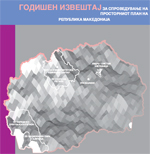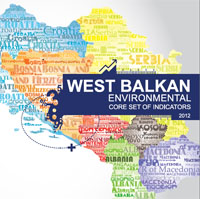Today, the second of the three workshops organized by the Economic Commission for Europe at the UN, dedicated to climate change, is taking place, based on the reviews of the environmental performance of the UNECE.
 The objectives of the workshop are to provide a platform for the countries of Eastern and South-Eastern Europe, Central Asia, and the Caucasus to share their experiences in addressing climate change issues and to support cooperation between relevant experts for the development of climate change policies.
The objectives of the workshop are to provide a platform for the countries of Eastern and South-Eastern Europe, Central Asia, and the Caucasus to share their experiences in addressing climate change issues and to support cooperation between relevant experts for the development of climate change policies.
The workshop will enable a discussion of the opportunities and challenges related to development in the creation of climate change policy, taking into account the implementation of the Sustainable Development Goals, as well as a deepening of knowledge about the available tools and instruments to support mitigation and adaptation, such as an identification of solutions to overcome challenges in the area of climate change.
 The Minister of Environment and Physical Planning, Kaja Shukova, opened the event and emphasized the importance of climate change, as a very current topic, which requires and deserves a relevant focus.
The Minister of Environment and Physical Planning, Kaja Shukova, opened the event and emphasized the importance of climate change, as a very current topic, which requires and deserves a relevant focus.
“Building a society resistant to climate change, by ensuring growth and development with low carbon, should be based on a synergistic approach and minimizing the negative consequences in the general development and climate policy” – emphasized Shukova.
 According to Shukova, development strategies and investment plans, as well as spatial and urban plans, sectoral policies in the energy sector (and transport), water management, agriculture, forests, biodiversity, and nature, should be focused on ensuring development and growth with low carbon and need to adapt to the projected impacts of climate change. Such an integrated approach requires adaptation of education, research, and development systems. Climate change requires environmentally innovative approaches and technologies, and eco-innovations will become key to economic growth, competitiveness, and employment, in combination with a wide range of other economic instruments.
According to Shukova, development strategies and investment plans, as well as spatial and urban plans, sectoral policies in the energy sector (and transport), water management, agriculture, forests, biodiversity, and nature, should be focused on ensuring development and growth with low carbon and need to adapt to the projected impacts of climate change. Such an integrated approach requires adaptation of education, research, and development systems. Climate change requires environmentally innovative approaches and technologies, and eco-innovations will become key to economic growth, competitiveness, and employment, in combination with a wide range of other economic instruments.
 Recommendations are expected to be produced for the next cycle of environmental performance audit reports in the countries of Eastern and South-Eastern Europe, Central Asia, and the Caucasus.
Recommendations are expected to be produced for the next cycle of environmental performance audit reports in the countries of Eastern and South-Eastern Europe, Central Asia, and the Caucasus.



































































